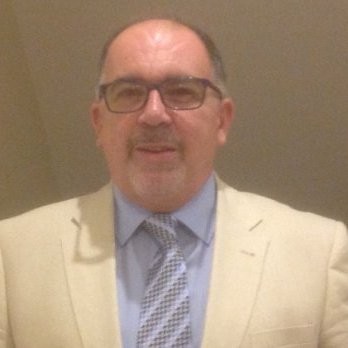Local tourism stakeholders are praying that 2022 will be a year of recovery, although rising COVID-19 infections and war continue to cast a shadow on travel.
Lino Cremona, General Manager of Plaza Hotels, which operates two hotels in Sliema, has over 40 years of experience in the sector. WhosWho.mt caught up with him to talk about recovery, issues facing the hospitality industry, and Malta’s status as a “gem in the Mediterranean”.
“Bookings are picking up,” he says, “although Russia’s invasion of Ukraine had a noticeable impact. We started receiving bookings, then they stopped. Presumably, few people were thinking about their summer holidays as a war broke out in Europe. After a while, they picked up again, and this week we had quite a good number of reservations.”

Plaza Hotels General Manager Lino Cremona
However, Mr Cremona warns against paying exclusive focus to the number of bookings.
“A high occupancy rate is important, of course, but we should pay just as much attention to the prices those rooms are being booked at. I can get a booking if I put my rate down – but does it really reflect a strong recovery?”
He says that rooms in the Sliema-St Julian’s area are going for around 20 to 25 per cent less than they did in 2019. While acknowledging that the market will not reach those peak levels for some time yet, he argues that falling rates coupled with higher costs reflect a worrying trend.
Those higher costs, affected by a supply chain crunch, war in Ukraine, and international sanctions on Russia – both major food producers – are compounded by a labour market that is still reeling from the pandemic.
“We can’t find competent workers,” Mr Cremona sighs. “It’s not an issue of pay. We are willing to pay for someone with the right skills. For some positions, we can get by with on-the-job training, like chambermaids or waiter. But chefs or receptionists, for example, are a whole other matter.”
He explains that many hotels use reservation systems that require a few weeks to get familiar with, while chefs need to be able to hit the ground running.
While acknowledging that many in the industry did not do enough to retain key workers at the onset of the pandemic, he points out that the hot labour market is leading to frequent job rotation – and higher training costs.
“If we had to calculate how many resources we wasted training people who then leave after a few short months… It’s unbelievable.”
The lack of human resources have led many to take difficult decisions, with the Plaza Regency closing its restaurant for dinner and operating on a bed and breakfast basis.
Other hotels have even offered vouchers to guests who opt not to have their room cleaned every day, which can then be spent on other services offered by the establishment.
However, for Mr Cremona, the issue with human resources goes far beyond the short term obstacles to regular operations.
“I’ve been working in this sector for over 40 years,” he says, “and it is undeniable that Malta has lost a lot of its charm to tourists over the years.
He recalls tourists who used to holiday in Malta and stay at the same hotel every year, with many striking up friendships with waiters and receptionists.
“There used to be this family environment that tourists loved. They would come back and ask for staff by name, happy to rekindle old friendships, and assured that the service would be top notch and genuine.”
With the shift to migrant workers, much of this is lost, as front of house staff change with such regularity that there is little hope of building lasting friendships.
Transient labour is also far less likely to develop an emotional attachment to their place of work, being less likely to go that extra mile for clients.
This, Mr Cremona fears, has contributed to Malta’s waning reputation as a destination with unparalleled hospitality, shining with warmth and generosity.
“Ultimately,” he says, “it’s about taking care of our little gem in the Mediterranean, and focusing on where we want to be in the future.”
Although much has been made of making Malta attractive for quality tourism, he believes the country has a long way to go to achieve it.
“The problems we locals complain about – the environment, the construction, the traffic – visitors are even more sensitive to these things, especially those from Northern Europe, who are traditionally among the biggest spenders.”
He remembers a couple, tourists – “friends of mine” – who told him, on a recent visit, that it may be their last. “They said they would think twice about coming to Malta again. The competition is fierce. Places like Greece, Cyprus and Turkey continue to improve their tourism offering. What are we doing to retain our once-excellent standing?”
Mr Cremona is emphatic that Malta can turn things around, however.
“Our size works in our favour. We just need a fraction of what other destinations attract. With two, three million tourists, we are full to capacity. We don’t need a lot. We just need to do our best to protect the local market against the many problems it faces.”
Main Image:
